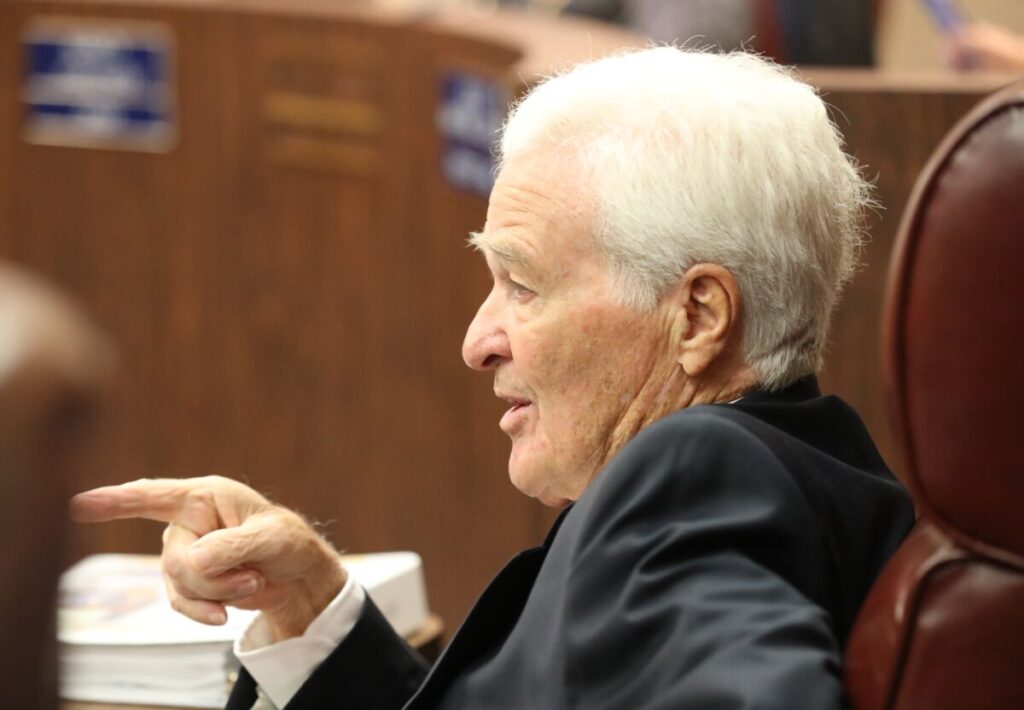Commentary on consent agendas
As everyone on this board regularly watches and attends public meetings, and some of us for quite some time, we figured we’d weigh in on recent concerns that the consent agenda is where the “boogie man” hides government business it wants to slip under the radar.

School board member Don Browning speaks during a meeting at the Marion County Public School Board in Ocala, Fla. on Tuesday, Sept. 7, 2021. [Bruce Ackerman/Ocala Gazette] 2021.
To read the story this commentary is concerning, click here.
As everyone on this board regularly watches and attends public meetings, and some of us for quite some time, we figured we’d weigh in on recent concerns that the consent agenda is where the “boogie man” hides government business it wants to slip under the radar.
In our experience, there are far more effective ways to do that.
For example, when an elected board delegates a lot of authority to staff or some private organization to make decisions pertaining to government business—it’s a prime opportunity for getting things done outside the sunshine.
But public meetings draw a crowd, including us and other media outlets, which means a strategy of hiding items in the consent agenda wouldn’t work as a long-term strategy for operating a government—unless of course, the public and local news agencies were not engaged.
Let’s all agree now not to let that happen.
From a practical standpoint, when Gazette reporters cover a meeting, there is usually a minimum of 800 to 1,000 pages attached for review in advance of the meeting. We’ll vouch that it’s a lot to review and still catch everything—because sometimes even we can’t do that!
It’s our belief that most of the time, the elected officials get the entire agenda the same time as it is released to the public, usually four or five days in advance of the meeting. Our heart particularly goes out to those officials, like City Council members, whom are basically volunteers, also working fulltime to pay their bills, yet expected by voters to thoroughly digest and vet each agenda item before voting on them.
Do we give consent agenda items get just as much attention as regular agenda items? You betcha! We understand that consent agendas could be used as a tool for formalizing an action that no one wants to talk about publicly.
In the past, when we’ve realized an item probably shouldn’t have been on the consent agenda, it’s usually not until much later- after other things have come to light. Those are cringe worthy moments for a reporter when they realize something got by them.
But do we think consent agendas are used appropriately to pass things that have been discussed ad nauseam or things that are routinely approved? Most of the time we believe that to be true, but we can also point to instances otherwise.
Most recently, we reported that in October 2020, an ordinance was passed via consent agenda that changed the city’s form annex agreement and the policy surrounding it.
In that resolution, developers seeking to hook up to city water and sewer located outside the city limits could enter into an annex agreement “with such revisions as are acceptable to the city attorney based upon its determination.”
Under the ordinance, the agreements only required the signature of the city council president and would not require approval by the city council.
Since the city attorney also represented developers entering into those agreements- this feels like the prime example of what not to put on a consent agenda.
Nonetheless, to Mr. Browning’s point, consent agenda items should receive equal attention from both the public and the press—to that, we agree.





